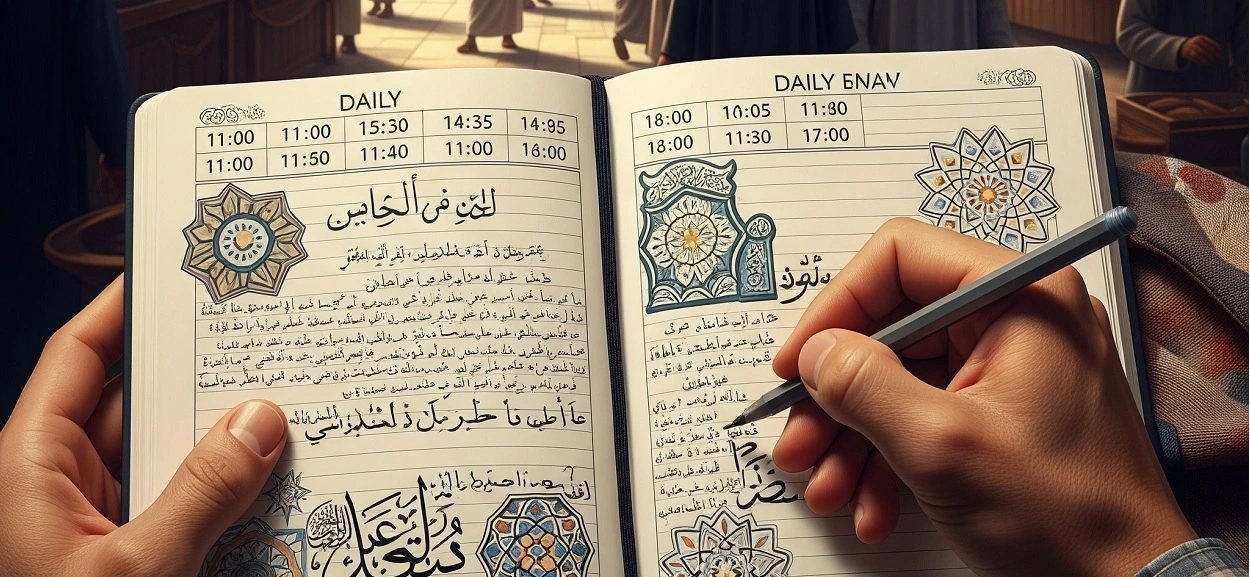Mental Health in Islam: Finding Serenity Amidst Trials
Understand the importance of mental health in Islam, the role of faith and worship as pillars of support, and practical Islamic tips for coping with stress, anxiety, and seeking professional help.

Amidst the roar of modern life, we often find ourselves tossed about by various pressures: work demands, family issues, economic uncertainty, and the flood of information on social media. All of this can drain our energy, leading to stress, anxiety, and even depression. Mental health issues are now widely discussed, and more of us are realizing how crucial it is to maintain our spiritual well-being.
But how does Islam view this vital issue? Are there spiritual and practical guidelines we can use to achieve Islamic inner peace? As Muslims, we believe that Islam is a perfect religion, encompassing every aspect of life, including our inner welfare. This article will delve into mental health from an Islamic perspective, providing deep understanding and offering faith-based solutions to face life’s challenges.
Mental Health: An Integral Part of a Muslim’s Well-being
Islam views humans as a complete unity consisting of the soul (nafs), body (jism), and spirit (ruh). True well-being (falah) can only be achieved when these three aspects are in harmony. When one is disturbed, the overall balance will be affected. Therefore, mental health—the health of our soul—is an inseparable component of a holistic Muslim’s well-being.
Islam never trivializes feelings of sadness, worry, or distress. In fact, the Quran and Hadith often mention these emotional states and provide guidance on how to overcome them. Inner pain is part of life’s trials, and with faith, it can be a means of cleansing sins and elevating one’s status.
The Islamic View on Trials, Patience, Tawakkul, and Gratitude
Life in this world is a series of trials. Allah SWT says: “And We will surely test you with something of fear and hunger and a loss of wealth and lives and fruits, but give good tidings to the patient.” (QS. Al-Baqarah: 155)
In facing these trials, Islam teaches several key pillars as supports for mental health:
- Sabr (Patience): This doesn’t mean passive acceptance, but restraining oneself from complaining, continuing to strive, and trusting that there is wisdom behind every trial. Patience is a key pillar in dealing with depression in Islam or Muslim anxiety.
- Tawakkul (Reliance upon Allah): After exerting one’s best effort, the heart completely surrenders the results to Allah. This removes the burden of anxiety about things beyond our control.
- Shukr (Gratitude): Remembering and appreciating Allah’s blessings, no matter how small, even amidst difficulties. Gratitude helps shift perspective from scarcity to abundance.
- Husnuzon (Having Good Opinion of Allah): Believing that Allah will not burden a soul beyond its capacity and that with every hardship comes ease.
Spiritual Pillars: The Role of Faith, Worship, and Supplication in Supporting Mental Health
For a Muslim, spiritual connection is the primary foundation of Islamic healing.
Salat (Prayer): Prayer is a direct dialogue with Allah SWT. It is a source of serenity and an antidote to despair. “Unquestionably, by the remembrance of Allah hearts are assured.” (QS. Ar-Ra’d: 28). Prayer, as the highest form of dhikr, regularly reminds us of our life’s purpose and our ultimate reliance. It unravels anxiety and provides a regular rhythm to our day.
Dhikr (Remembrance of Allah): Reciting the names of Allah, tasbih (glorification), tahmid (praise), tahlil (declaration of Allah’s oneness). Dhikr is therapy for a restless soul. Examples: La ilaha illallah (There is no god but Allah), Subhanallah wa bihamdihi (Glory be to Allah and praise be to Him), Hasbunallah wanikmal wakil (Allah is sufficient for us, and He is the best Disposer of affairs).
Reading and Reflecting on the Quran (Tilawah): The Quran is a shifa’ (healing) and mercy. Reading it with tadabbur (reflection on its meaning) can soothe the heart, provide guidance, and strengthen the soul. “And We send down from the Quran that which is a healing and a mercy to those who believe…” (QS. Al-Isra’: 82).
Du’a (Supplication): Du’a is a powerful weapon of a believer. Expressing all worries and hopes directly to Allah SWT can relieve the heart and build optimism. Prophet Muhammad (PBUH) always made du’a when facing difficulties.
The Importance of Community and Professional Support in Islam
Islam is a religion that strongly emphasizes the importance of community (ummah) and mutual support.
Silaturahim (Maintaining Kinship Ties) and Muslim Community: Maintaining good relationships with family, friends, and fellow believers provides a strong social support system. Interacting with others who share similar values can reduce loneliness and offer new perspectives.
- Prophet Muhammad (PBUH) said, “The example of the believers in their mutual love and mercy, is like that of a single body; if one part of it suffers, the whole body feels it in sleeplessness and fever.” (HR. Muslim).
Seeking Professional Help When Needed: Islam encourages us to seek knowledge and the best solutions for every problem. If the mental difficulties experienced disrupt daily functioning, seeking help from a psychologist, psychiatrist, or counselor is a wise and Sharia-compliant action. This is not a sign of weakness, but of courage and effort. Just as we seek physical treatment when ill, so too should we treat the soul. There should be no stigma against those seeking Islamic psychological support.
Exemplary Conduct of Prophet Muhammad (PBUH) and Scholars in Maintaining Inner Peace
The life of Prophet Muhammad (PBUH) is a living example of how to maintain inner peace amidst trials. He faced accusations, betrayals, loss of loved ones, and even physical threats, yet always showed extraordinary patience and tawakkul.
- He Calmed His Heart with Prayer: When facing major problems, he would immediately pray.
- Interacting with Others: He was a good listener and often comforted his companions.
- Humor and Smiles: Despite the heavy burden of da’wah, he often smiled and joked within reasonable limits.
- Early Scholars: They emphasized the importance of zuhud (detachment from worldly desires), qana’ah (contentment), and tafakkur (contemplation) as keys to inner peace.
Practical Islamic Tips for Managing Stress and Enhancing Well-being
In addition to the main pillars above, there are several Islamic tips for inner peace you can apply daily:
Muhasabah (Self-Introspection): Take time each night to reflect on the day that has passed. What went well? What went wrong? How can I be better tomorrow? This helps with self-reflection and spiritual growth.
Qiyamul Lail (Night Prayer): Standing in prayer in the last third of the night, when most people are asleep, is the calmest moment to supplicate to Allah. This is the best healing for the soul.
Tilawah (Recitation of the Quran with Tadabbur): Don’t just read, but try to understand its meaning. Choose one verse or a short chapter, read its translation, and reflect on how it’s relevant to your life.
Sadaqah (Charity): Giving to those in need, even if a little, can bring immense happiness and cleanse the soul from stinginess and anxiety.
Positive Thinking (Husnuzon billah): Train yourself to always have a good opinion of Allah and to see the positive side in every situation, even behind difficulties. Trust that there is wisdom in it.
Maintaining a Healthy Lifestyle: Eat halal and tayyib (good) food, exercise regularly, and get enough sleep. A healthy body supports a healthy soul.
Conclusion: True Serenity Is With Allah
Mental health from an Islamic perspective is about understanding that life is a journey, full of trials and blessings. By holding firm to faith, making worship a pillar, seeking strength in community, and not hesitating to seek professional help, we can navigate life’s challenges with a calm heart and a strong soul.
Always remember the words of Allah SWT: “And seek help through patience and prayer, and indeed, it is difficult except for the humbly submissive [to Allah].” (QS. Al-Baqarah: 45). True serenity is always with Allah.
What has your experience been like in maintaining mental health as a Muslim? Share your stories and tips in the comments section below!
For more guidance on achieving Islamic inner peace and strengthening your spirituality, explore other articles on our website in the ‘Tranquility of Heart’ category.






Comments